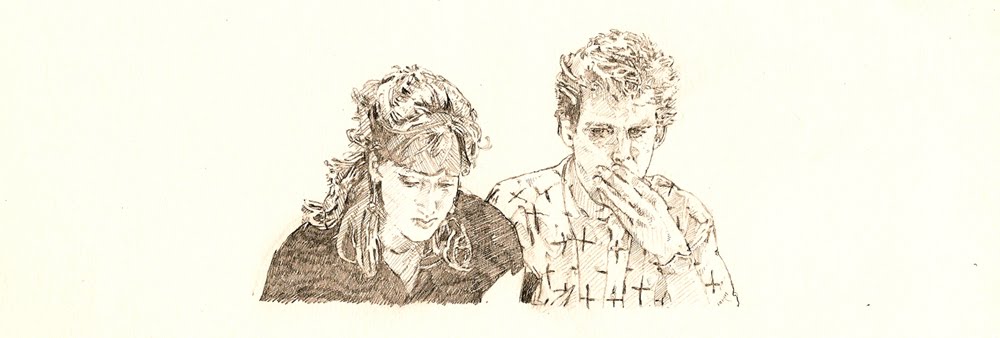
Sunday, 30 May 2010
Publics and Counterpublics.
Friday, 28 May 2010
Thursday, 27 May 2010
Wednesday, 26 May 2010
Tuesday, 25 May 2010
Lana Turner Has Collapsed by Frank O'Hara.
Lana Turner has collapsed!
I was trotting along and suddenly
it started raining and snowing
and you said it was hailing but hailing
hits you on the head
hard so it was really snowing and
raining and I was in such a hurry
to meet you but the traffic
was acting exactly like the sky
and suddenly I see a headline
LANA TURNER HAS COLLAPSED!
there is no snow in Hollywood
there is no rain in California
I have been to lots of parties
and acted perfectly disgraceful
but I never actually collapsed
oh Lana Turner we love you get up
Monday, 24 May 2010
Sunday, 23 May 2010
Monday, 17 May 2010
I made this when I was about thirteen.
James Smith Press Release.
Magic.
Miranda July is an artist, not just a filmmaker or a writer. Everybody hates Miranda July, unless they don’t know any better. I know better and I still like Miranda July. Reading her short stories (published together as ‘No One Belongs Here More Than You’ by Canongate in 2007) is more like reading lots of carefully crafted aphorisms stuck together. She’ll write something like;
“I looked at Pip and for a split second I felt as though she was nobody special in the larger scheme of my life. She was just some girl who had tied me to her leg to help her sink when she jumped off the bridge.”
She is colloquial and familiar and is clearly trying to explain something to you. If you don’t believe her she’s terribly affected and pretentious, if you accept what she’s saying it creeps over you like a warm cocoon. She either hits the nail on the head or misses completely and is exposed for the pretentious charlatan she really is. She didn’t go to art school, she is preposterous enough to think that she could make it without training and now thousands of idiots love her. The thing about Miranda July is that her use of language she attempts to keep you in the present, a conversational tone allows that and when it’s achieved it seems effortless. By proxy, you’re then caught in the spontaneity of an instant. When you’re caught in that moment July wants you to feel like anything’s possible.
James Smith didn’t do foundation. He went on to one of the best/better art colleges in the country/outside of London straight from school. He is well versed in the business of experiencing art and exhibitions, he has a penchant for wandering around and absorbing information. He knows what it’s like to experience an exhibition, to walk around one, to try and decipher the artworks, to look at their titles to try and get a better understanding and to walk on without giving it much thought. James Smith plays around with the idea of an exhibition, placing things where they suggest they shouldn’t be, he shows you things that you might recognize, he makes you feel like this piece, or that, could be in your home. Things insinuate themselves into your comfort zone and you imagine them being somewhere else. You might be reminded of the carefully constructed peculiarity of a Tom Friedman piece; a bar of soap with a pubic hair in it that has formed a perfect spiral, an oversized cereal box made from squares cut out of others. Things are slightly distorted, enlarged, collected and all these little details are moments. There are moments of familiarity, even in their alieness. Miranda July’s writing also uses that sense of familiarity that culminates into a moment. In this immediacy of objects there is magic: whether considering these things or accepting them this is all happening now. This is where you are.
Paul Sammut.


















